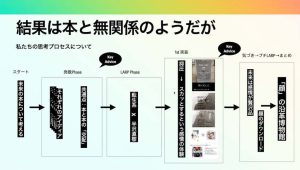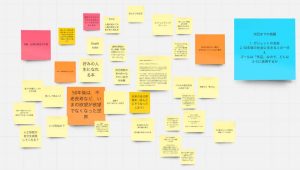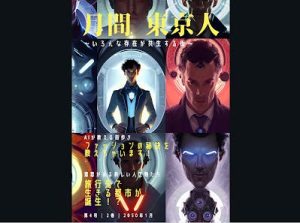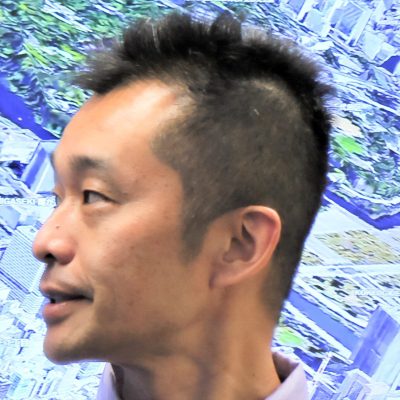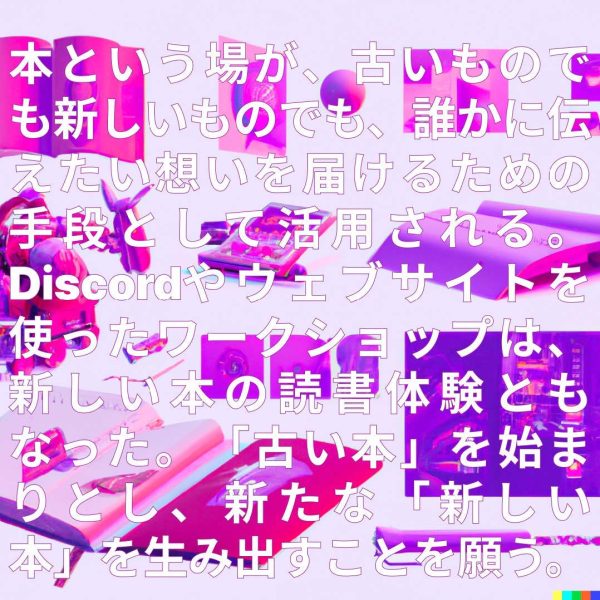
May 11, 2023
「2050年の新しい本」を考える : 講談社・メディアドゥ新しい本寄付講座「SFプロトタイピングワークショップ」New books in 2050: Kodansha x Media Do New Book Research Project SF Protoyping Workshop
講談社・メディアドゥ新しい本寄付講座では「SFプロトタイピングワークショップ」を、2022年10月より約5ヶ月間にわたり開催しました。本ワークショップは、「2050年の新しい本」を考えることが目的です。渡邉英徳研究室の学生、東京大学制作展の学生、寄付講座のメンバーが4つのチームに分かれて、オンライングループワークを行いました。
ワークでは、SF小説のように未来の出来事や課題を想起し、そこから逆算して「いま何をすべきか」を考える「SF思考・SFプロトタイプ」の概念を用いて、具体的なガジェット/モノを描写し、成果物を提出することが求められました。各チームにはゲスト講師として、樋口恭介さん(SF作家)、長谷川愛さん(メディア・アーティスト)、大澤博隆さん(慶應義塾大学准教授)、宮本道人 さん(科学文化作家)というSFに造詣の深い方々をお招きし、ご参加いただきました。
成果講評会では、4つのチームが全く異なるアプローチで成果物を発表しました。
筆者が参加したチームは、樋口先生のリードで、AIによる文章生成や写真生成AIを多用し、人間とAIの境界を曖昧にする世界観を構築。「新しい本」をめぐるSF小説や異常論文を執筆、電子書籍として配信しました。(図1) SFプロトタイピングでお互いに「ぶっ飛んだ」世界を共有し、「それ、面白いですね」と褒め合いながら議論を深めていきました。筆者は未来の葬儀と本をテーマにした短編を執筆しています。
50年後を舞台とするLARP(Live Action Role Playing)デザインを導入し、実世界で集ってロールプレイングしたチームもあります。感情のコントロールをテクノロジーに頼るようになり、表情をダウンロードして「顔」に埋め込むという未来の社会問題を提起し、表情に着目した映像作品を発表しました。(図2)(図3) 他にも、自然素材に文章を組み込んだ食べる本が出現した世界を絵本形式で発表したチーム(図4)、未来の1日をロールプレイして、未来の街歩きのための雑誌構想「月間東京人」を発行し、科学技術の進歩によって自然が文字を表現する特集を掲載したチームもありました(図5)。
いずれの成果物も、複合的で、重層的で尖っていました。本寄付講座は、ワークショップと同時進行で、「今から少し先の未来」にフィーチャーした新しい本のエコシステムの実現に向けてアプリケーション開発を検討しています。アプリケーション公開を楽しみにしていてください!
記事:原田真喜子(新しい本寄付講座 特任研究員)
The Kodansha x Media Do New Book Research Project held its “SF Prototyping Workshop” over a period of about five months starting in October 2022. The purpose of this workshop was to come up with “new books in 2050”. Hidenori Watanave Lab members, students of the III Exhibition, and members of the New Book Research Project divided into four teams and participated in a series of online group work sessions.
In the workshop, members were required to use the concepts of “SF thinking” and “SF prototyping”, which involve recalling future events and issues as in SF novels, and then working backwards to consider “what should be done now”. They were also required to describe specific gadgets/objects and submit them as the final product of the workshop. Each team invited guest lecturers to participate in the workshop, including SF novelist Kyosuke Higuchi, media artist Ai Hasegawa, Keio University Associate Professor Hirotaka Osawa, and science culture creater Michito Miyamoto.
At the final presentation, the four teams presented their results with completely different approaches. Here are summaries of the results:
The team in which this author participated, led by Mr. Higuchi, used AI-generated text and photos to create a world view that blurs the boundary between humans and AI. The members of the team wrote SF novels and abnormal papers related to “new books” and distributed them as e-books (Figure 1). Through SF prototyping, they shared “outrageous” worlds with each other, deepening their discussions while praising each others’ work. The author wrote a short story based on the theme of future funerals and books.
Another team introduced a LARP (Live Action Role Playing) design set 50 years in the future, and came together to role-play in the real world. They raised social issues from a future where people rely on technology to control their emotions and embed expressions on their “faces,” and presented a video work that focused on facial expressions. (Figure 2 and 3) Another team presented a world where books made of natural materials were introduced, incorporating text into food, in the form of picture books. (Figure 4) Another team created a magazine concept called “Gekkan Tokyojin” for walking around the future city, featuring a special issue on natural expressions being represented by scientific and technological advances. (Figure 5)
All of the results were complex, multi-layered, sharp, and cool. Parallel with this workshop, the Kodansha x Media Do New Book Research Project is also considering developing an app to realize the ecosystem of “new books in the not so distant future”. Please look forward to the release of the application!
Text: Makiko Harada (Project researcher)
English proofreading: David Buist (Project senior specialist)
主担当教員Associated Faculty Members
教授
渡邉 英徳
- 文化・人間情報学コース
- 先端表現情報学コース
- アジア情報社会コース
- 情報学環教育部
Professor
WATANAVE, Hidenori
- Cultural and human information studies course
- Emerging design and informatics course
- ITASIA Program
- Undergraduate research student program


